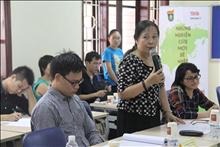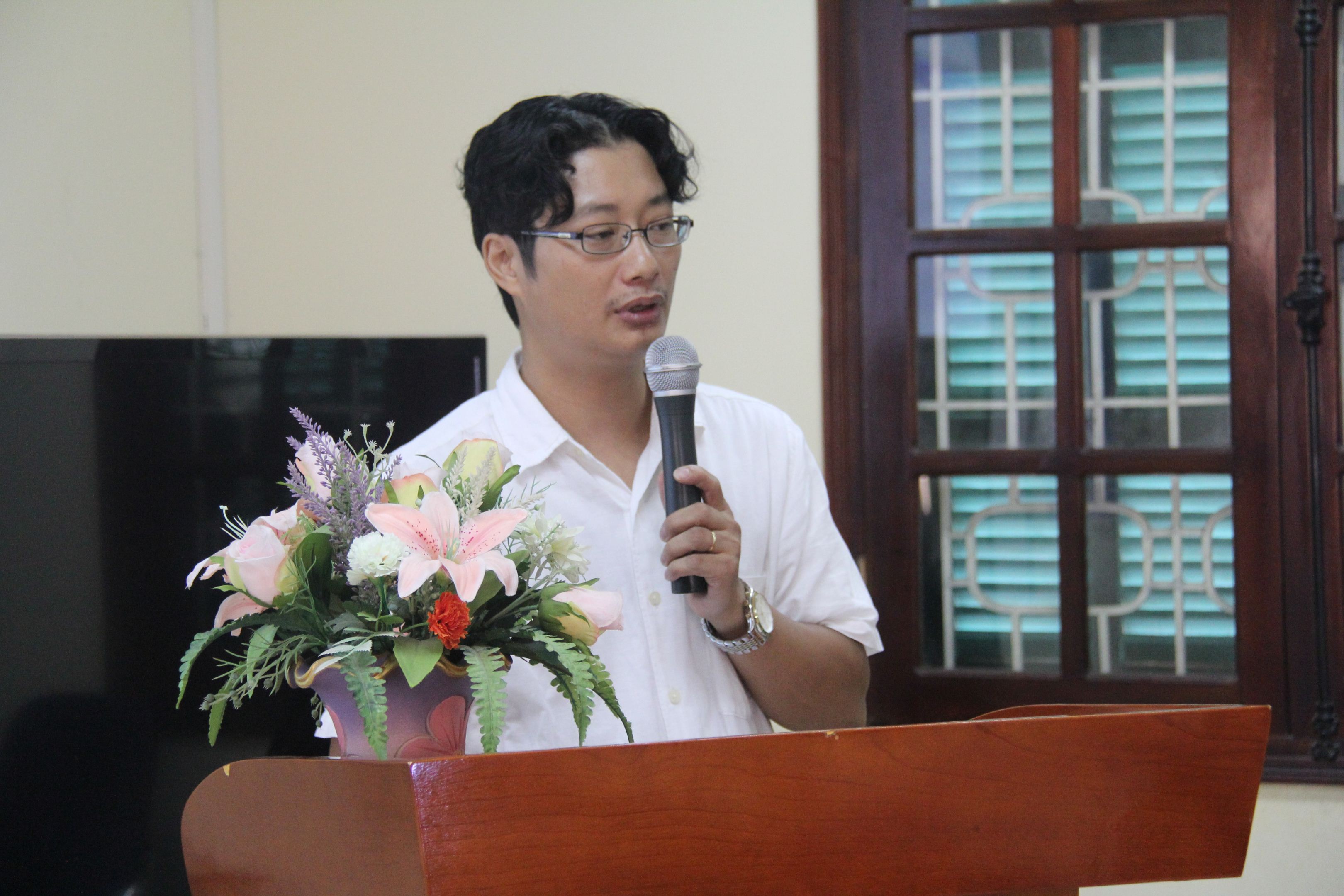
In this seminar, two new studies were presented.
Research fellow Pham Hoang Hung (Division of Japanese studies, Faculty of Oriental Studies) presented his paper “Women’s inheritance rights in Goseibai Shikimoku – ‘Formulation of Adjudications” in the 18th century (Japan) and ‘Criminal Codes of the National Imperial Court’ – Quốc triều hình luật in the 15th century (Vietnam). The paper provided a brief overview of these codes and discovered that both of them had recognized women’s inheritance rights. This feature was not available among Chinese standardized codes at that time. The author then concluded that both Vietnamese and Japanese feudal systems adopted an agricultural system and recognized private ownership.

Research fellow Pham Hoang Hung presented his paper
Assoc. Prof. Dr Phan Hai Linh (Faculty of Oriental Studies) said the paper dealt with a very interesting issue in both Vietnamese and Japanese histories, namely women’s inheritance rights during feudalism and especially in the aforementioned codes, and also made use of primary sources. Assoc. Prof. Dr Vu Thi Phung (Faculty of Archival Studies and Office Management) said that this paper not only helped us understand the past better but shed light on women’s role and position in the eyes of feudal authorities. However, the paper should have extended its scope to contemporary Japanese and Vietnamese women, and studied more materials on women’s inheritance rights in feudal codes in general and the Criminal Codes of National Imperial Court in particular.
Dr. Vo Minh Vu (Division of Japanese) presented his paper “The presence of karayuki-san in Southeast Asia since the end of 19th century until 1920”. The paper examined Japan-Southeast Asia relations by investigating the presence of Japanese women that worked abroad, also called karayuki-san, in Southeast Asia since the end of the 19th century to the 1920s, through Japanese records and statistics.
Dr. Pham Van Thuy (Faculty of History) said the study of Japanese prostitutes in Southeast Asia was a social and historical approach to Japan-Southeast Asia relations compared to previous economic and political approaches. Dr. Nguyen Manh Dung (Institute of Policy and Management) remarked that Vu had made a quite comprehensive and systematic study of the presence of sakayuki-san in Southeast Asia in terms of number, age and profession but added that more explanations be provided on the concept of “social phenomena”, “presence” and more Japanese oral sources should be utilized.
The series of seminar “New studies on Japan and Asia” was held to promote academic activities among young scholars and stimulate the sharing of research findings on Japan and Asia.
Author: Tran Minh
Reader Comments
Newer articles
Older articles